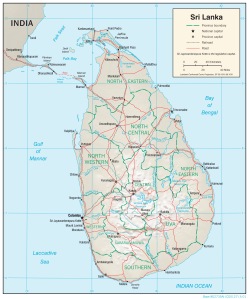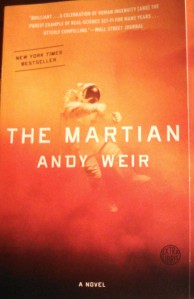Yeats, Long Walks & the Influence of Reading Widely
I don’t know if there’s a place left in the world for nature poetry. I would like to hope there still is, although I don’t know what it would look like. Surely sprawling pastoral verse is gone. It seems trite to continue celebrating a natural state we have abandoned so long ago. There are microplastics floating in the very air we breathe and the water we drink. The world is on fire and underwater more now than ever before. The earth is sick and we are the disease. Maybe there’s a place for nature poetry, although it must adapt to the current state of things. Instead of celebratory in beauty or wondering in mystery, maybe we should lament; elegiac poems have a place for what once was. Maybe the fantastic can take hold, showing what could be or what will only ever be imagined. I want hope to be the foundation even in the midst of cautionary and dire warnings.
I guess my point is that I feel drawn to the natural and to poems about the natural, even as we become a relentlessly artificial society. I want big, shady trees, and grass between my toes, and the promise of place I may never go. Yet those places should remain unreached by all of humanity. I hope to achieve a deeper connection with the natural world, and in so doing, I want to recognize when to leave well enough alone. Just following this thought process inspired me to write the following:
Blue Marble Blues
It is home, and not quite home,
and as I stand alone—alone
beneath the sky and breathing air
that all the world and creatures share—
I know I share in this great earth
which we’ve valued as less than worth
the effort it takes to spare its ruin
(yet I know it’s all our doing);
this fever, this madness, this slow decay
will bring us, with Earth, to the end one day.
I always skew darker than I’d like when I consider turning these thoughts into a poem. I take comfort knowing that many poets revisit and rework their poems throughout their careers. Perhaps more experience and practice will allow me to shape the above poem into a more hopeful version of what it is now. We shall see (I swear this is my tagline now).
These thoughts were prompted by my recent reading, and a big trip out West (which I talked about here). I’ll be doing an in-depth review/analysis of A Conspiracy of Stars in the coming weeks, but this book, my current reading of W. B. Yeats’s work, and a new obsession with hiking (frustrated by too many obligations this summer) have led me to focus on poetry inspired by, and responding to, the natural world. Not that Yeats would be the first poet one would think of when considering poetry on nature, but I’ll get there. My reading up to now has been quite sharply focused on nature and how we view it, and react to it, especially in nonfiction. I suppose this is a consequence of being a Park and Resource Management student. Lately I’ve read, split by genre (sort of):
Nonfiction
Coyote America
The End of Night
Mountains without Handrails
The Wild Muir
The Origins of Creativity
How It Ends: From You to the Universe
O’Keefe (art book)
The Genius of Birds
A Walk in the Woods
Other Minds: The Octopus, the Sea, and the Deep Origins of Consciousness
H is for Hawk
Poetry
Leaves of Grass
Fiction
Phantastes
A Conspiracy of Stars
Next, I’m jumping into Ravens in Winter. I’ve got a few other good ones on the TBR pile. A Conspiracy of Stars is the last book I finished, and while fiction it delves into a lot of what I was rambling about at the beginning of this post. It also touches on the question: Knowing what we know about our planet and how we’ve damaged it, would we do any better if we had a chance to start over with that knowledge? Like I said, I’ll get into that question in detail in my next post.
Here also is where Yeats comes into the discussion. Instead of the pastoral flavoring of Romantic influences, Yeats threads his poems with almost a kind of yearning for that earlier (e.g. mythic) past, which he knows is only really existent in his mind. Like longing for an unrequited love or expecting the glorious return of King Arthur, there is beauty in the memory, but no real hope of the thought achieving reality. It’s not so much of “what once was” as “what could’ve been,” wrapped up in the tone of Yeats’s work. Take a look at “Adam’s Curse” for example:
We sat together at one summer’s end,
That beautiful mild woman, your close friend,
And you and I, and talked of poetry.
I said, ‘A line will take us hours maybe;
Yet if it does not seem a moment’s thought,
Our stitching and unstitching has been naught.
Better go down upon your marrow-bones
And scrub a kitchen pavement, or break stones
Like an old pauper, in all kinds of weather;
For to articulate sweet sounds together
Is to work harder than all these, and yet
Be thought an idler by the noisy set
Of bankers, schoolmasters, and clergymen
The martyrs call the world.’
And thereupon
That beautiful mild woman for whose sake
There’s many a one shall find out all heartache
On finding that her voice is sweet and low
Replied, ‘To be born woman is to know—
Although they do not talk of it at school—
That we must labour to be beautiful.’
I said, ‘It’s certain there is no fine thing
Since Adam’s fall but needs much labouring.
There have been lovers who thought love should be
So much compounded of high courtesy
That they would sigh and quote with learned looks
Precedents out of beautiful old books;
Yet now it seems an idle trade enough.’
We sat grown quiet at the name of love;
We saw the last embers of daylight die,
And in the trembling blue-green of the sky
A moon, worn as if it had been a shell
Washed by time’s waters as they rose and fell
About the stars and broke in days and years.
I had a thought for no one’s but your ears:
That you were beautiful, and that I strove
To love you in the old high way of love;
That it had all seemed happy, and yet we’d grown
As weary-hearted as that hollow moon.
(1902)*
There’s a melancholy here, and a sense of time gone past and chances lost. The scene is “one summer’s end,” the close of a season and the turning toward the end of another year. “Since Adam’s fall” conjures up the perfection of a long gone past and the ruin that followed, up to the present. The phrase indicates the Biblical fall from grace of humanity, after which Adam and Eve were banished from the Edenic paradise. Following this pattern of language, the time of day is evening and the speaker watches as “the last embers of daylight die.” The summer is ending, the day is dying, the speaker and his companions are fallen creatures, subject to death and decay.
Then there is the consideration of the “old high way of love,” the courtly romance as lionized by stories of knights and ladies and noble deeds. The speaker calls up images of courtly behavior her and his companions only know from stories, from long forgotten history, and even here there is the sense that this history is more of a mythology (Arthurian archetype, again) viewed from the present through a lens which glorifies the distant past beyond reality. The speaker seems to acknowledge this, but speaks of it nonetheless. The last two lines betray this knowledge of time marching on and memories of the past not being what they seem. And the speaker admits, “That it had all seemed happy, and yet we’d grown/ As weary-hearted as that hollow moon.” They’re perhaps yearning after something that is no longer there, and worse, may never have been.
Now is the “so what” of this whole thing. I said I’ve been thinking about long walks, and these in the woods. Follow my thoughts. What we view as the wild isn’t the real wild. The closest you can get to that is the back end of Siberia or somewhere above the Brooks Range in Alaska, or maybe not-yet-mapped tributary of the Amazon River. Humanity’s fingerprints are everywhere; we’re good at shaping the world around us, for better or worse. But! when we consider that what we view as wild now is not the true wild that begs the question: What is? Is it any remaining wilderness pre-Industrial Revolution? pre-Transatlantic exploration? pre-Christianity? Pre- pre- pre- all the way down to prehistory. But what then? Humans were shaping the world before writing existed, and what we know isn’t known from experience or memory, but from written and archaeological records.
Following this distance from the first humans, huddled together in a shallow cave through the night sometime before fire was known, we return the question I asked earlier. In response to reading A Conspiracy of Stars, with distance from the ruined earth, but knowledge of how it was destroyed and the ability to do better, will we do better? Or will we long for the imagined past, where we gloss over the ruination for a dose of nostalgia and longing for what it never really was but how we choose to remember it? I’m looking forward to diving deeper into this book in my next post. The second book in the series, An Anatomy of Beasts, by Olivia Cole, is out already and I’m looking forward to reading it too.
I hope you can follow my thoughts here. They’re a bit scattered, reaching back to pre-fire humanity and forward to the stars beyond our Earth-bound home, and trying to connect some important dots in between. Maybe we should act like getting off this rock is not a viable option, quit worrying about what’s gone, and start trying to do better by what remains. We don’t know exactly what we’ve lost, but we do know what is left to lose. Let’s value it a little higher.
*from William Butler Yeats: Selected Poems and Four Plays, M.L. Rosenthal, ed. (4th ed.)





